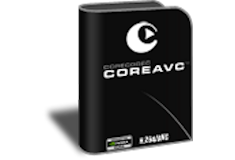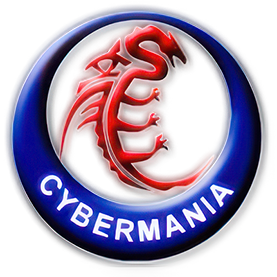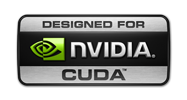
CoreAVC is known in the industry as being the standard for playback of high quality H.264 video. The new CoreAVC Decoder allows you to offload video decoding to any accelerated decoder that works with either NVIDIA CUDA or ATI with Microsoft’s DirectX Video Acceleration (DXVA) interface for any Windows XP, Vista, or Windows 7 PC.
CoreAVC 2.0 fully supports GPU hardware acceleration with NVIDIA CUDA Technology, and works with other compatible NVIDIA Platforms like ION running on Windows XP, Vista, or 7.
CoreAVC Professional
Is fast becoming the industry standard for high quality H.264 playback. For the highend video zealots CoreAVC Professional Edition even supports SMP processors, allowing for even fast multitasking while playing back high-definition CoreAVC H.264 video.
Technology Bulletpoints
- Supports Windows 7
- 32/64 bit Support
- NVIDIA CUDA GPU support
- Supports up to 16 CPU Cores
- QuadHD Resolution Support
- Uses Directshow for MKV
- Includes the Haali Media Splitter
- Full Interlaced support
Matroska MKV Enabled
Get Matroska MKV and MKA support from the people here at CoreCodec that helped create Matroska in the first place!
Netbooks+CoreAVC=Sexy
Who said small Netbooks would never be capable of High Definition H.264 Video has never seen the power of CoreAVC 2.0 with Netbooks supporting NVIDIA CUDA Technology and ION based Netbooks like the HP 311 or the dual core hotness, that is the ASUS 1201N.
CoreAVC 2.0 is bringing Sexy back!
CoreAVC Requirements
Recommended Hardware Configurations for proper CoreAVC™ Playback
The CoreAVC™ H.264 Video decoder for windows directshow has the following ‘recommended’ hardware configurations below: Noting that the recommendations listed are measured for full screen video playback and a more powerful system will deliver the best playback experience. But because of how efficient CoreAVC is, you may find that what it takes to perform at these levels can be achieved just as well on a slower PC too.
CoreAVC™ for Windows
CPU – 800 MHz or faster Intel Pentium class or equivalent AMD processor
RAM – At least 256MB of RAM
OS – Windows 98, 2000, XP, Vista, 7
480p video at 24 frames per second
CPU – 1.4 GHz or faster Intel Pentium 4 or equivalent AMD processor
RAM – At least 256MB of RAM- 64MB or greater video card
OS – Windows 98, 2000, XP, Vista, 7
720p video at 24-30 frames per second
CPU – 2.2 GHz or faster Intel Pentium 4 or equivalent AMD processor
RAM – At least 512MB of RAM
GPU – 128MB or greater video card
OS – Windows 98, 2000, XP, Vista, 7
1080p video at 24-30 frames per second
CPU – 2.8 GHz or faster Intel Pentium 4 or equivalent AMD processor
RAM – At least 1GB of RAM
GPU – 256MB or greater video card
OS – Windows 98, 2000, XP, Vista, 7
GPU Requirements for NVIDIA CUDA:*
NVIDIA GeForce GTX 260/280/290/295, 9800, 9600, 9500, 8800 GT, 8800 GTS 512, 8700, 8600, 8500, 8400, Tesla S1070/C1060, Quadro FX 3700, Quadro FX 3600M, Quadro FX 1700/FX 570/ NVS 320M/FX 1600M/FX 570M/FX 370/NVS 290/NVS 140M/NVS 135M/FX 360M/NVS 130M and higher.
* You will also need drivers 182.05 or higher from NVIDIA
Technology Bulletpoints
- Supports Windows 7
- 32/64 bit Support
- DXVA 1/2 Compatible
- NVIDIA CUDA GPU support
- ATI GPU support (DXVA)
- Multicore ready (16 CPU Cores)
- 8100×8100 Resolution Support
- Full Interlaced support
- Uses Directshow for MKV
- Haali Media Splitter Included
CoreAVC H.264 Video Codec – Version 3.0.1.0 (20110909)
– ADD: DXVA re-initialization when device is lost
– FIX: Catch samples that don’t get properly released by EVR
– FIX: Overflow in high bit depth weighted prediction
– FIX: Bug in 10-bit SSE2 IDCT
– FIX: Missing YV12 bitdepth caused misaligned blits from i010/i009 formats
– FIX: Don’t use NV12 for connection if it’s disabled and DXVA is unavailable
– CHG: Use “DXVA” FourCC for NV12 subtype when it’s used for DXVA connections
– CHG: Reduce CPU usage while polling for DXVA completion
– CHG: Reinitialize decoder context on input pin disconnection
– CHG: Force low latency mode when graph is paused
Haali Media Splitter – Version 1.11.288.0 (20110909)
– FIX: MP4 video output pin regression
(Registered Silent Repack) 32bit
Download
(Registered Silent Repack) 64bit

